Estimated reading time 16 minutes, 24 seconds.
An industry association representing nearly 300 of the world’s airlines says that only about 30 of them have the necessary cash reserves to weather the economic storm induced by the COVID-19 pandemic.
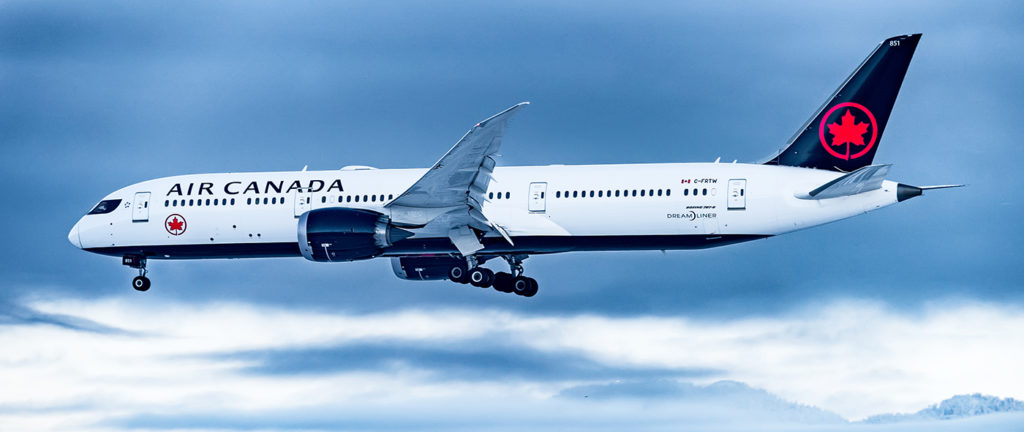
The Montreal-based International Air Transport Association (IATA) – whose Canadian members include Air Canada, Air Transat, Cargojet and WestJet – said on March 17 that the crisis had affected markets representing 94 per cent of global passenger revenues.
“In times of crisis like this, balance sheets are key to survival,” noted IATA chief economist Brian Pearce during a media call.
“The vast majority of airlines still have high levels of debt, which means they still have fixed obligations to pay even when there is no revenue . . . [at the start of the year], 75 per cent of the airlines we looked at had less than three months of cash to cover those bills. That is pretty much running out for many airlines now, and that’s driving the liquidity crisis we have today.”
IATA issued a call for governments around the world to take “extraordinary measures” that will safeguard cash flow, such as waiving slot rules, removing taxation and fees, and reducing income and payroll taxes.
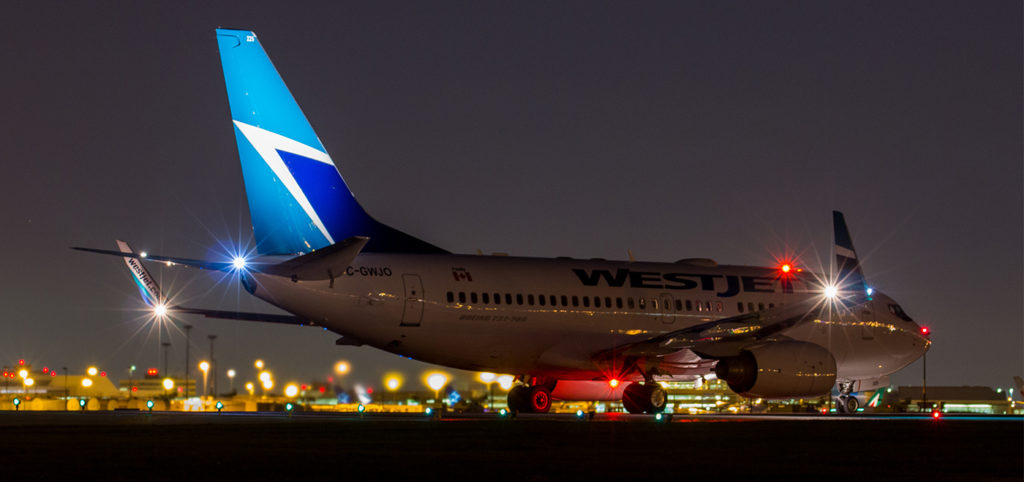
Here in Canada, voices from the national air transport sector have come together in a growing chorus to request emergency financial assistance from the federal government in Ottawa.
The situation is dire, believes John McKenna, president of the Air Transport Association of Canada (ATAC). On behalf of its membership, which includes commercial operators, flight training institutions and aviation industry suppliers, ATAC submitted an “urgent appeal for immediate government financial support” to Prime Minister Justin Trudeau on March 16.
“We need . . . help or air transport services in Canada might not be the same in two weeks’ time,” McKenna told Skies. “These are companies that cannot afford to wait six months.”
The National Airlines Council of Canada – which represents Air Canada, Air Transat, Jazz Aviation and WestJet – issued a call for a number of measures it said were both necessary and urgent. “This includes addressing airline liquidity, providing relief from various government charges such as airport ground rent, navigational fees and excise tax, and an immediate pause in non-pandemic related regulatory and policy development.”
On the evening of March 18, Trudeau tweeted that he had spoken earlier that day with the CEOs of both Air Canada and WestJet about the toll COVID-19 is taking on the airline industry.
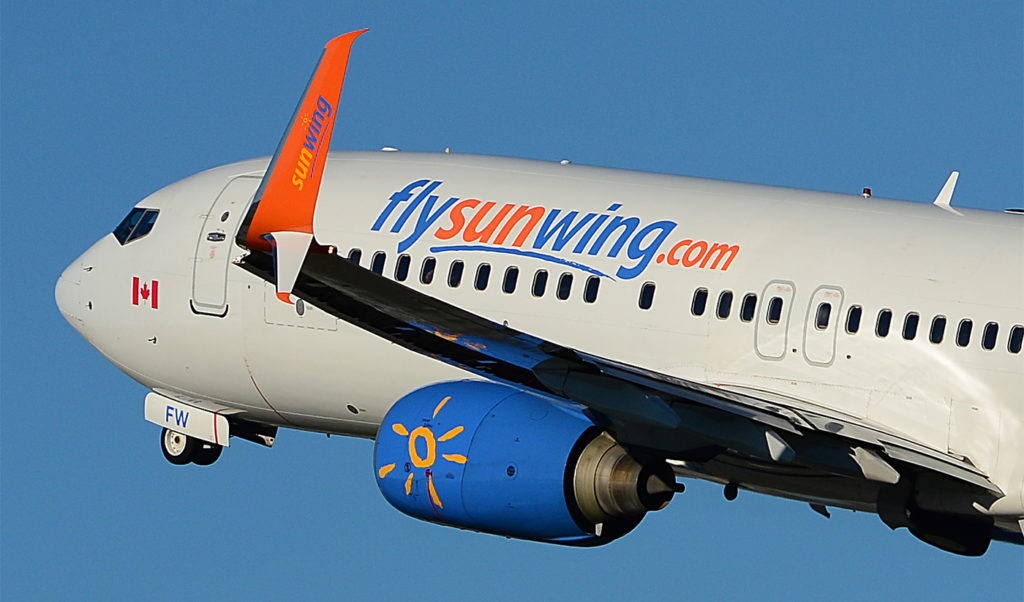
“We know some sectors of our economy – like travel and tourism – are more vulnerable than others, and we’ll keep working together as we look at ways to support those affected,” Trudeau said on Twitter.
Canada’s two largest airlines were no doubt relieved to see that tweet, which came in the middle of a gut-wrenching week full of hard decisions.
Although the coronavirus had been marching inexorably toward Canada for some weeks, the pace picked up tremendously on Monday, March 16, when Trudeau announced Canada was closing its borders to foreign nationals, with some exceptions.
In addition, only four airports in the country would be handling international flights: Vancouver, Calgary, Toronto and Montreal. Canadian air operators were also mandated to refuse passage to any travellers exhibiting symptoms of COVID-19.
Subsequently, it was announced the Canada-U.S. border would be closed to non-essential travel on March 21.
It didn’t take long for operators to react.
Leisure carrier Sunwing Airlines said on March 16 that it would be focusing on bringing Canadians home, cancelling all southbound flights from March 17 to April 9. Any open seats remaining after check-in for each flight would be offered to Canadian citizens or permanent residents free of charge in an effort to bring everyone home, the leisure carrier later added.
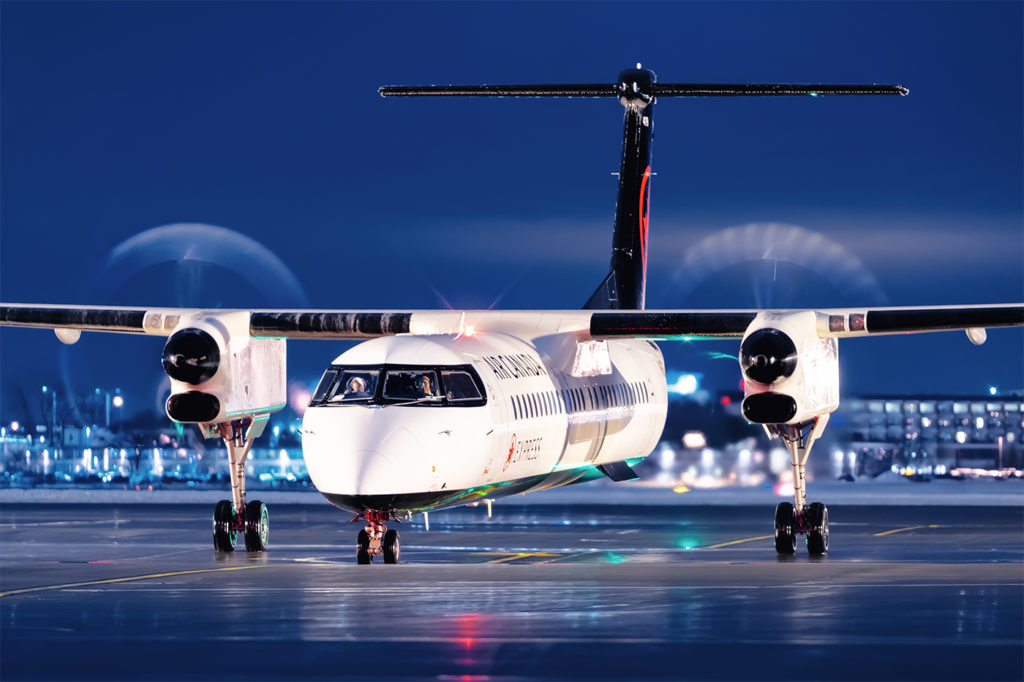
Additionally, Sunwing said uncertain market demand for its southern vacation packages had forced the airline to issue layoff notices to its 470 pilots, as well as cabin crew, as of April 8.
“Our pilots and flight attendants play a crucial role in our operations and this was not a decision that we took lightly,” said Sunwing Airlines president Mark Williams. “Once we have confirmation on a return to service date of our southbound flights, we fully intend to recall our flight and cabin crew members. These are incredibly difficult decisions to make. But the circumstances we face are dire and we must take action to ensure the long-term viability of our business.”
Williams also said that while Sunwing has never sought government support in the past, it is seeking assistance now under these exceptional circumstances.
Over in Calgary, WestJet president and CEO, Ed Sims, announced on the evening of March 16 that the airline would be suspending all scheduled commercial operations (international and transborder) for 30 days, effective March 22.
“We will be operating rescue and repatriation flights in partnership with the Canadian government,” wrote Sims, who added that ticket prices into Canada were being reduced. “In addition, we will also reduce our domestic schedule by approximately 50 per cent. At this point, all network changes are in place for the next 30 days.”
WestJet’s ultra-low-cost carrier arm, Swoop, is suspending all international and transborder flights as of March 22 – a restriction that will be in place until May 31.
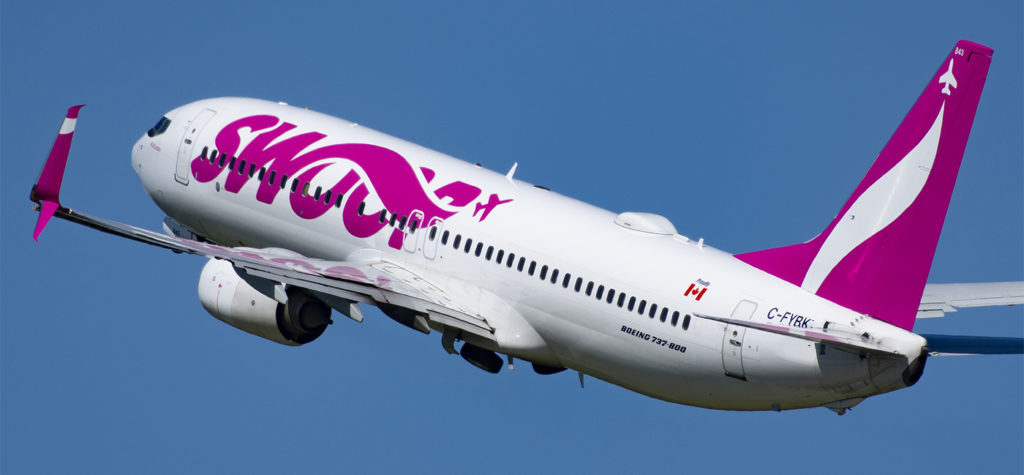
Swoop planned to begin operating extra flights on March 23 to bring home Canadian travellers. A total of 15 flights were scheduled over three days to repatriate 2,349 Swoop customers, said the airline.
Canada’s largest airline and flag carrier released its own pandemic response plan on March 18. Air Canada will gradually suspend its international flights by March 31; after that date, it plans to serve a small number of international and transborder destinations to facilitate the repatriation of Canadian citizens who are still abroad, as well as the transportation of necessary cargo. The changes reduce the airline’s international network from 101 airports served to just six. In the U.S., service will be reduced from 53 airports to 13 and is subject to further reductions based on government orders.
Domestically, Air Canada said it will continue to fly to all Canadian provinces and territories during the month of April.
“The restrictions on travel imposed by governments worldwide, while understandable, are nonetheless having a cataclysmic effect upon the global airline industry,” said Air Canada president and CEO Calin Rovinescu.
On March 20, the Canadian Union of Public Employees (CUPE), which represents Air Canada’s flight attendants, confirmed the airline will be laying off about 3,600 mainline cabin crew and all 1,549 Rouge employees. The layoffs will take effect on April 30 at the earliest, said CUPE.
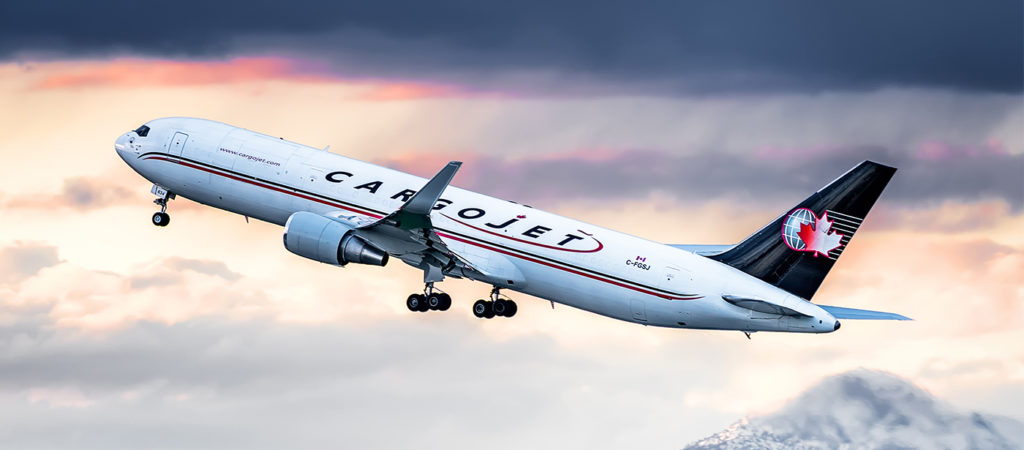
“This has been the most challenging time any of us will likely ever experience as flight attendants,” said Wesley Lesosky, president of the Air Canada component of CUPE. “Our members have been on the front lines of this crisis since day one, and it has been a tough journey ever since. Our hearts go out to all of our members, especially those who fell sick while doing their job.”
CUPE represents 15,000 flight attendants at nine different airlines in Canada, including Air Canada, WestJet, Sunwing and Air Transat. The union called on Ottawa for financial support “tied to protecting jobs and ensuring that airlines recall our members quickly.”
On March 23, Transat A.T. Inc. announced it would be laying off 70 per cent of its staff and reducing work time and/or salaries for the remainder. About 3,600 employees will be affected by the cost-cutting move, including all flight crew at Air Transat. The Montreal-based holiday travel provider has halted all ticket sales to and from most U.S. and European destinations. It, too, is focused on bringing Canadians home but will shut down international operations until at least April 30 once the repatriation flights are completed.
Porter Airlines is also shuttering its operations temporarily, effective March 20 to June 1. The Toronto-based operator of Dash 8-400 aircraft said it will also be forced to issue layoff notices to many of its 1,500 employees, but plans to recall all team members once the airline is up and running again.
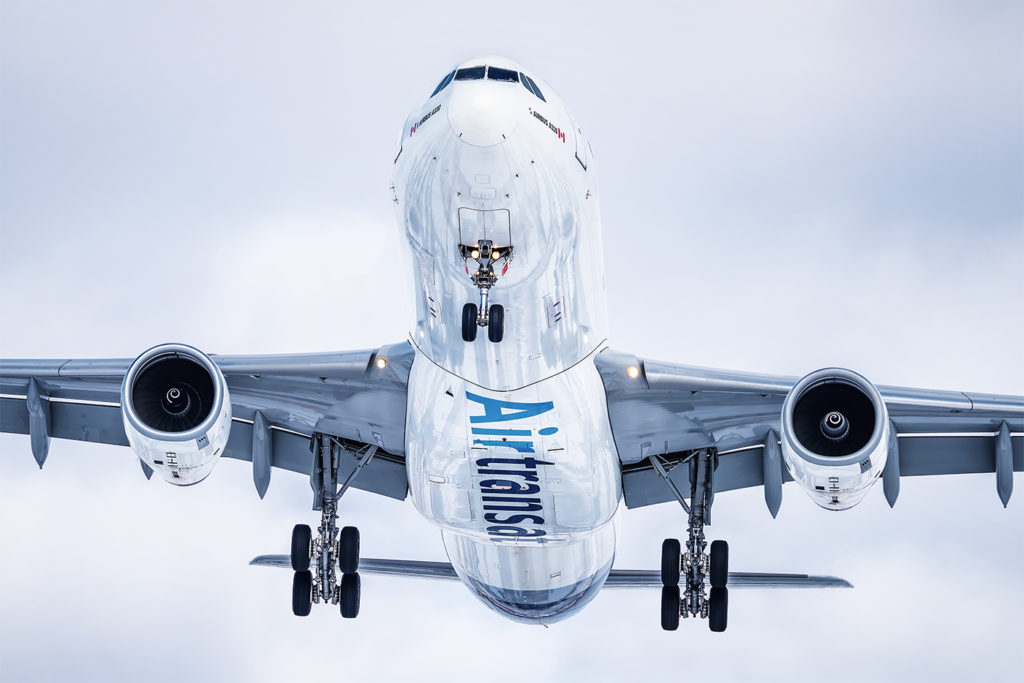
“Executive chairman Robert Deluce and I will not receive any salary during this time, in alignment with the impact on our team members. All other management who remain during the temporary suspension will see salary reductions of up to 30 per cent until flights resume,” said Michael Deluce, Porter’s president and CEO.
Essential services
IATA director general and CEO, Alexandre de Juniac, pointed to the crucial role that air cargo operators play in delivering medicines, equipment and time-sensitive materials to keep the global economy functioning. In a March 16 press release, IATA urged governments “to take urgent measures to ensure that air cargo will be available to support the global fight against COVID-19.”
Mississauga, Ont.-based Cargojet said on March 19 it is now experiencing significantly higher demand from the e-commerce sector, as well as for health care and essential supplies. The operator said it was reassigning aircraft from international cargo routes to the Canadian overnight network and preparing to handle additional demand through the addition of daytime flights. In addition, “we are paying special attention to ensuring that supply chains to northern communities remain strong,” said Cargojet.
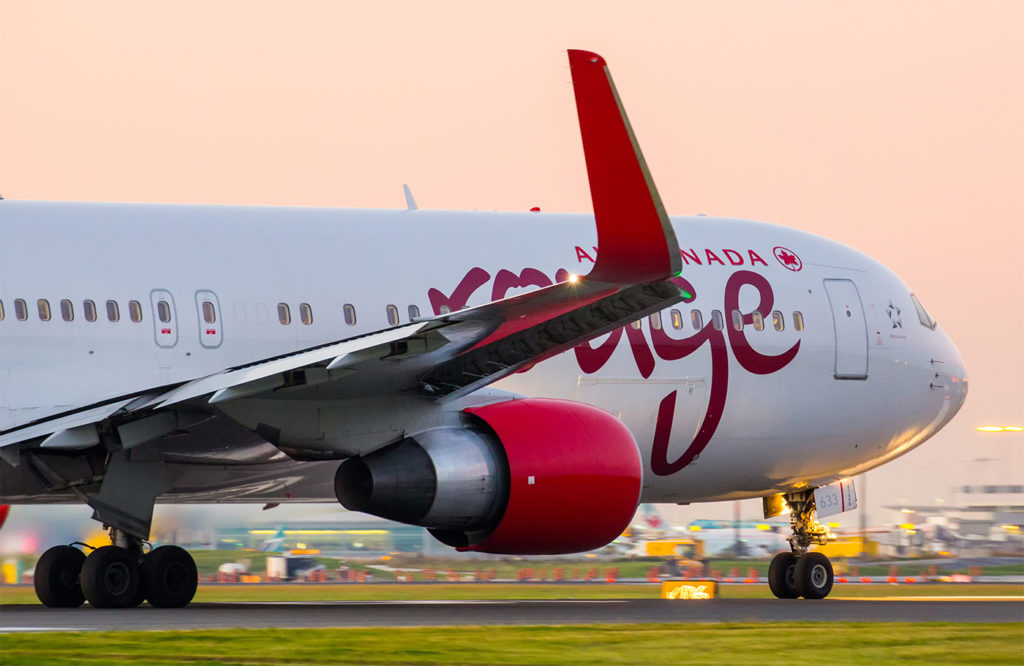
Canada’s northern air operators are also responding to the crisis. Both Air North and Air Inuit said they had scaled back operations due to reduced demand, although they will keep flying while taking all recommended precautions to stem the spread of COVID-19.
Glenn Priestley, executive director of the Northern Air Transport Association (NATA), told Skies on March 20 that northern operators are an essential service.
“Northern air carriers are not the largest in Canada, but we do provide essential service to the largest proportion of Canada’s land mass and to many communities that have no road access and/or are not served by mainline carriers,” he said.
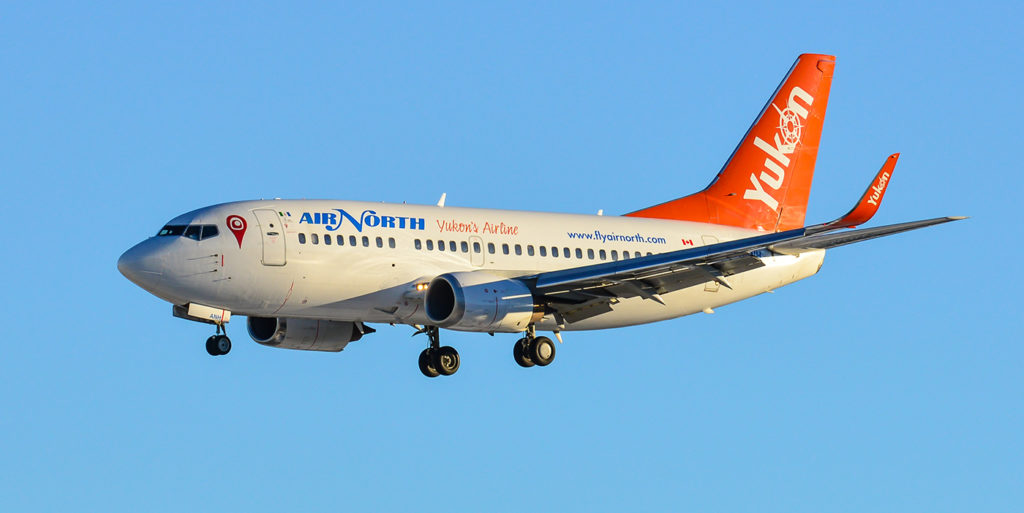
NATA has petitioned the federal government for immediate financial relief for its 30-plus operator members. Specifically, Priestley said this included “temporary suspension of the excise tax on jet fuel, Nav Canada charges, the Air Transport Security Charge, and airport rents with a flow through to airport fees.
“It is imperative that northern air carriers are not overlooked in discussions concerning airline financial support.”
– With files from Ken Pole and Robert Williamson








